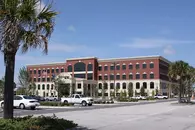South Carolina Contractor License Search
What You Should Know about Hiring a Contractor in South Carolina
South Carolina has over 79,000 qualified contractors operating in the state. When hiring contractors for your projects, opting for licensed contractors guarantees that your project will be handled by a skilled professional capable of delivering satisfactory service. Licensed contractors are also typically insured and bonded, providing you with protection against liabilities in the event of work-related accidents. It is essential to verify the credentials of your intended contractors before committing to a contract to avoid undesirable outcomes and safeguard you from potential risks, including:
- Risk of falling victim to fraudulent contractors who may disappear with your money without completing the project.
- Subpar work that does not meet the relevant industry standards
- Code violations and unsafe work practices
The state handles the licensing of contractors in South Carolina. Nevertheless, before hiring contractors in the state, it is essential to consider the following key issues:
- Who Is a Contractor in South Carolina?
- How to Search a Contractor's License in South Carolina
- Penalty for Hiring a Contractor Without a License in South Carolina
- How Much Does a Contractor Charge in South Carolina?
- Tips for Hiring a Contractor in South Carolina
- Is Your Contractor Insured and Bonded as Required by South Carolina Statute?
- Top Home Improvement Scams in South Carolina
- How to Report Fraudulent South Carolina Contractors
Who Is a Contractor in South Carolina?
Contractors in South Carolina include businesses and individuals who provide various services to other parties according to the terms of written or oral agreements. These services typically include constructing, altering, or repairing structures or buildings.
Contractors must carry an appropriate license to offer their services in the state. The South Carolina Contractors Licensing Board (CLB) licenses general and mechanical contractors, while the South Carolina Residential Builders Commission (RBC) licenses residential/specialty contractors. Contractors in the state are into two groups:
- General Contractors: general contractors oversee home improvement and construction projects. They also manage the laborers, subcontractors, and vendors involved in the project. They usually coordinate the activities of these individuals. Although they are licensed to carry out specific construction work, general contractors can perform other projects without a license. General contractors in the state are into the following:
- Residential Builder: these individuals construct, repair, or upgrade a structure or building that is not over three stories in height. Contractors must obtain a license from the RBC if they are undertaking projects costing over $5,000.
- General and Mechanical Contractors: general contractors offer to oversee or perform general construction. Likewise, mechanical contractors offer to oversee or perform mechanical construction. The CLB issues licenses to mechanical and general contractors under several classifications when working on industrial and commercial projects worth over $5,000.
- Fire Sprinkler Contractors: these individuals are approved by the CLB to carry out various activities related to fire protection systems. These include planning, installing, repairing, maintaining, and inspecting fire sprinkler systems.
- Burglar and Fire Alarm Contractors: these individuals are authorized by CLB to carry out work related to the design, installation, maintenance, and modification of alarm systems.
- Specialty Contractors: These contractors handle specific home improvement and construction projects that require specialized expertise. Some specialty contractors commonly involved in home improvement projects include electricians, plumbers, carpenters, and HVAC technicians. Typically, homeowners or general contractors hire specialty contractors for projects. The RCB registers residential specialty contractors in South Carolina when the undertakings exceed $500. Note that they are not allowed to add structures or buildings without the supervision of a licensed residential builder.
How to Search a Contractor's License in South Carolina
Licensing of contractors in South Carolina is handled at the state level by the South Carolina Contractor's Licensing Board and the state's Residential Builders Commission.
You can confirm the licensing status of your preferred contractor by using the following:
- The Uhire Professional License Search tool.
- The South Carolina Contractor's Licensing Board's License Lookup tool to confirm the license of burglar, fire alarm, and fire sprinkler contractors. Similarly, contact this board at (803) 896-4686 to check if your general or mechanical contractor holds a valid license.
- The Residential Builders Commission's License Lookup portal to verify residential builders' licenses.
These platforms allow you to search for contractors based on their name, license number, location, and other factors.
Penalty for Hiring a Contractor Without a License in South Carolina
While it is not illegal to hire unlicensed contractors for work in South Carolina, there are several downsides to hiring one, including:
- Unlicensed contractors typically lack the necessary insurance and bond coverage to protect themselves or you from legal liabilities arising from work-related accidents.
- You could end up with a shoddy and terrible service delivery if you hire an unqualified individual to work on your project.
- Unlicensed contractors are not allowed to take out permits from local building authorities, which means they will likely carry out your project without following proper construction procedures. This could result in violations of building codes and lead to administrative penalties.
Engaging in construction work without a valid license is considered a criminal offense in South Carolina. Violators could face fines of up to $5,000, $5,000, imprisonment for up to two years, or a combination of both.
How Much Does a Contractor Charge in South Carolina?
Specialty contractors in South Carolina charge their clients around $60 to $110 an hour for their services. Their total fees vary depending on the task's scope and labor intensity.
The table below shows the typical hourly rates for South Carolina subcontractors. The rates may vary due to various factors, such as your preferred contractor's reputation and your location:
When it comes to home improvement or construction projects, it is common for multiple contractors to be involved. Handling your projects yourself can be stressful, especially when dealing with multiple laborers and materials suppliers. Instead of dealing with these individuals directly, you can hire a general contractor to handle the project for a fee of around 10 to 20 percent of the project's total cost. You can calculate this fee by utilizing one of two methods:
- Lump Sum Pricing: the general contractor agrees to complete the project for a predetermined fee. This type of fee is ideal for projects with a clear scope and a definite timeline.
- Cost Plus Pricing: this method allows the general contractor to charge for their work and markup for their services. It's ideal for projects that have a vague timeline. If the general contractor uses this method, you should also negotiate a maximum price to help prevent the costs from inflating.
Home improvement and construction projects in South Carolina usually range from around $95 to $155 per square foot. The overall costs for these types of projects can also vary depending on various factors:
- Your location
- The nature, scope, and complexity of the project
- The cost of requirement permits and construction materials
- Site conditions and accessibility
- Involved contractors' expertise and local reputation
- Contractor fees, labor fees, and other related expenses
Tips for Hiring a Contractor in South Carolina
A home improvement or construction project can be costly, even if it involves minor repairs and maintenance. Before hiring a contractor, you must take the necessary steps to ensure that you will get quality and satisfactory service. The first step to take includes understanding the project's scope and services that you require and identifying the contractors who can fulfill your needs. After identifying the contractors that will perform the work, you should consider taking the following steps:
- Verify that the contractor holds the appropriate licenses for their trade in South Carolina.
- Request proof of insurance and bond and ensure that their coverage is current and adequate for the scope of your project.
- Request references from past clients and contact them to inquire about their service delivery.
- Seek recommendations for reputable contractors from friends, family, and neighbors.
- Obtain and compare multiple quotes from different contractors for your project.
- Get every detail of your project in writing, including the scope of work, timelines, payment terms, and warranties.
- Review any contract thoroughly before signing and seek clarification on any ambiguous terms.
- Consider local contractors because they have better knowledge of local regulations and suppliers and easier accessibility for communication.
- Limit down payments to 10 - 30 percent of the project's total cost. Avoid paying the full price of your project upfront.
- Only make final payments when you have confirmed the project is complete.
Is Your Contractor Insured and Bonded as Required by South Carolina Statute?
Before hiring a contractor, ensure they have the necessary insurance and bond coverage to protect you from various risks, such as accidents, property damage, and on-the-job injuries. Although bonds and insurance are often used interchangeably, they offer different types of coverage. The contractor and the project owner can benefit from insurance covering injuries and accidents. On the other, bonds offer financial protection to owners of projects, who are not liable for losses incurred by the contractor due to their failure to fulfill their obligations.
In South Carolina, contractors are required to fulfill bond obligations based on the type of license they have:
- The South Carolina Contractors Licensing Board (CLB) requires general contractors to post a surety bond between $20,000 and $350,000. In contrast, mechanical contractors must post between $ 7,000 and $300,000, depending on their license group.
- The South Carolina Residential Builders Commission (RBC) requires residential/specialty contractors to post surety bonds up to $15,000.
Always request from your prospective contractors proof of their bonds. For more information about the financial obligations of South Carolina contractors, contact the CLB and RBC at (803) 896-4686 and (803) 896-4696, respectively. Also, ensure they carry the necessary liability insurance coverage even though it is not mandatory for contractors in South Carolina, and contact the insurer to confirm the coverage is adequate.
Top Home Improvement Scams in South Carolina
About 1.6 out of every 10,000 South Carolina homeowners have been victims of home improvement fraud. Home improvement scams are carried out by unscrupulous individuals preying on unsuspecting homeowners in the state. Below are some warning signs that you might be dealing with a fraudulent contractor:
- Lack of appropriate licensing and qualifications.
- Pressure to make quick decisions without giving you enough time to verify them or compare them with other contractors
- Demands full or a significant portion of the project cost upfront
- Hesitant to provide written estimates, references, or contracts
- Unwilling to provide insurance or bonding information
- Lack of a local and verifiable business address
- Unsolicited door-to-door offers
- Unrealistically low bids compared to other contractors
Before you hire a contractor for a home improvement project, make sure to take the following precautions to help avoid getting ripped off:
- Look for recommendations from trusted sources, such as friends, family, or neighbors who have had positive experiences with contractors.
- Verify that the contractor is appropriately licensed, bonded, and insured.
- Obtain and compare written cost estimates from multiple contractors for your project. Be cautious of estimates significantly higher or lower than others, as they usually indicate potential scams or hidden costs.
- Ask and check past clients' references to inquire about their work quality.
- Carefully read and understand contracts before signing. Ensure it includes all project details like project timelines, payment terms, warranties, and other specific requirements.
- Avoid cash payments
- Avoid paying large upfront payments
- Hold off on making the final payment until the job is complete.
How to Report Fraudulent South Carolina Contractors
Numerous agencies in South Carolina can be contacted to report fraudulent or dishonest contractors, including:
The South Carolina Contractor's Licensing Board
You can file complaints with the state's Contractor's Licensing Board about contractors' poor service delivery, fraudulent activities, and other problems. You can achieve this by completing and submitting an online complaint form.
The South Carolina Department of Consumer Affairs
You can also report home improvement and contractor scams to the South Carolina Attorney General's Office by completing an online complaint form or filing and sending a paper complaint form via mail to:
South Carolina Department of Consumer AffairsAttn: Consumer Services
PO Box 5757
Columbia, SC 29250‐5757
Small Claims Case
If you're unsatisfied with the services a contractor provides, you can try to file a small claims lawsuit. This type of lawsuit can be filed at the relevant Magistrate Court if your claim does not exceed $7500. The Magistrate Court sets the fees for filing a small claims lawsuit in the county where the claim is made.
The Better Business Bureau (BBB)
The Better Business Bureau can help you with your dispute with fraudulent contractors. Informing the local BBB chapter near you about questionable contractors in your region can help stop other people from falling victim to such schemes.
Local Law Enforcement Agencies
You can also send complaints about criminal conduct, theft, or threats to the nearest local law enforcement.


